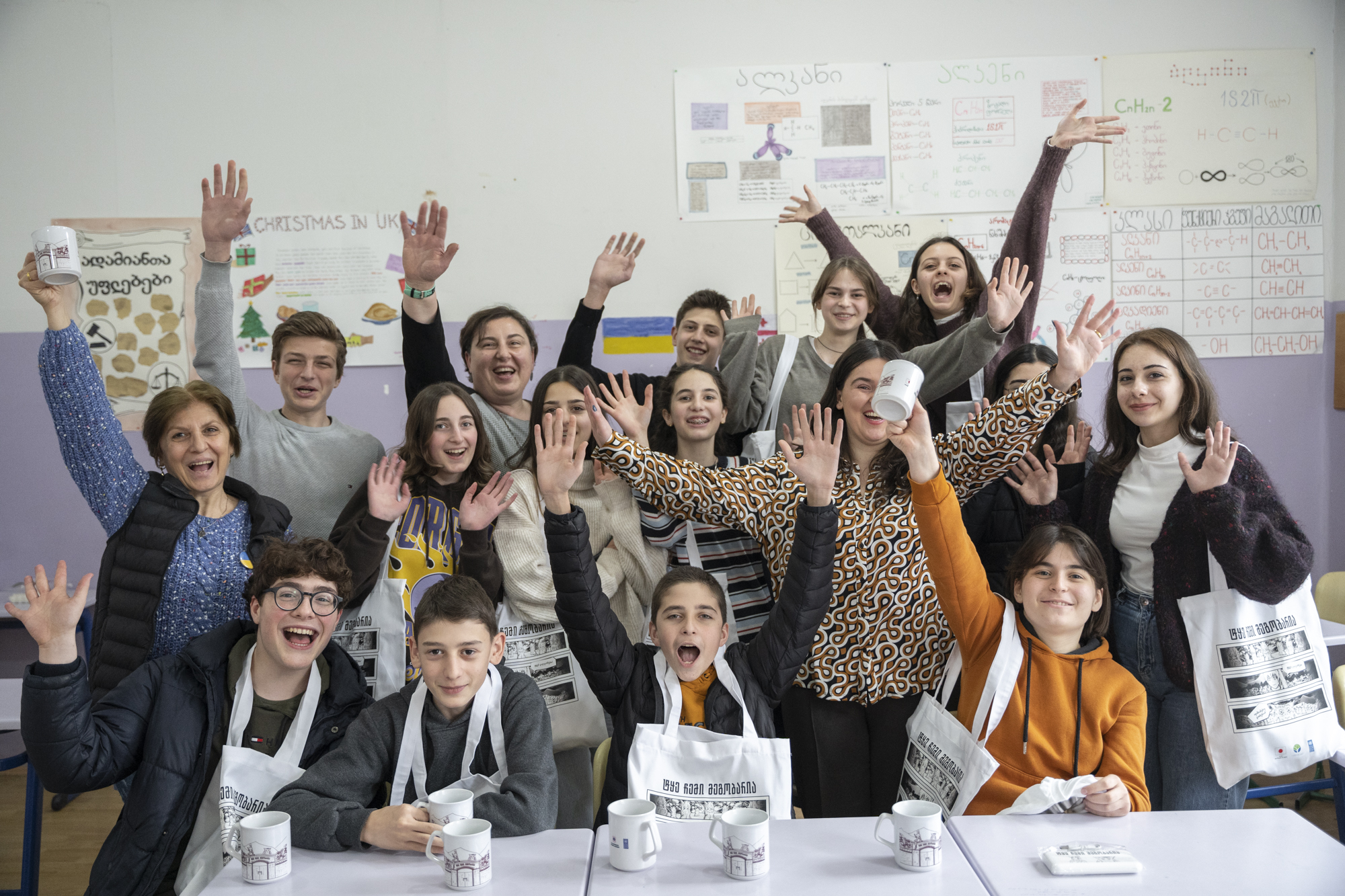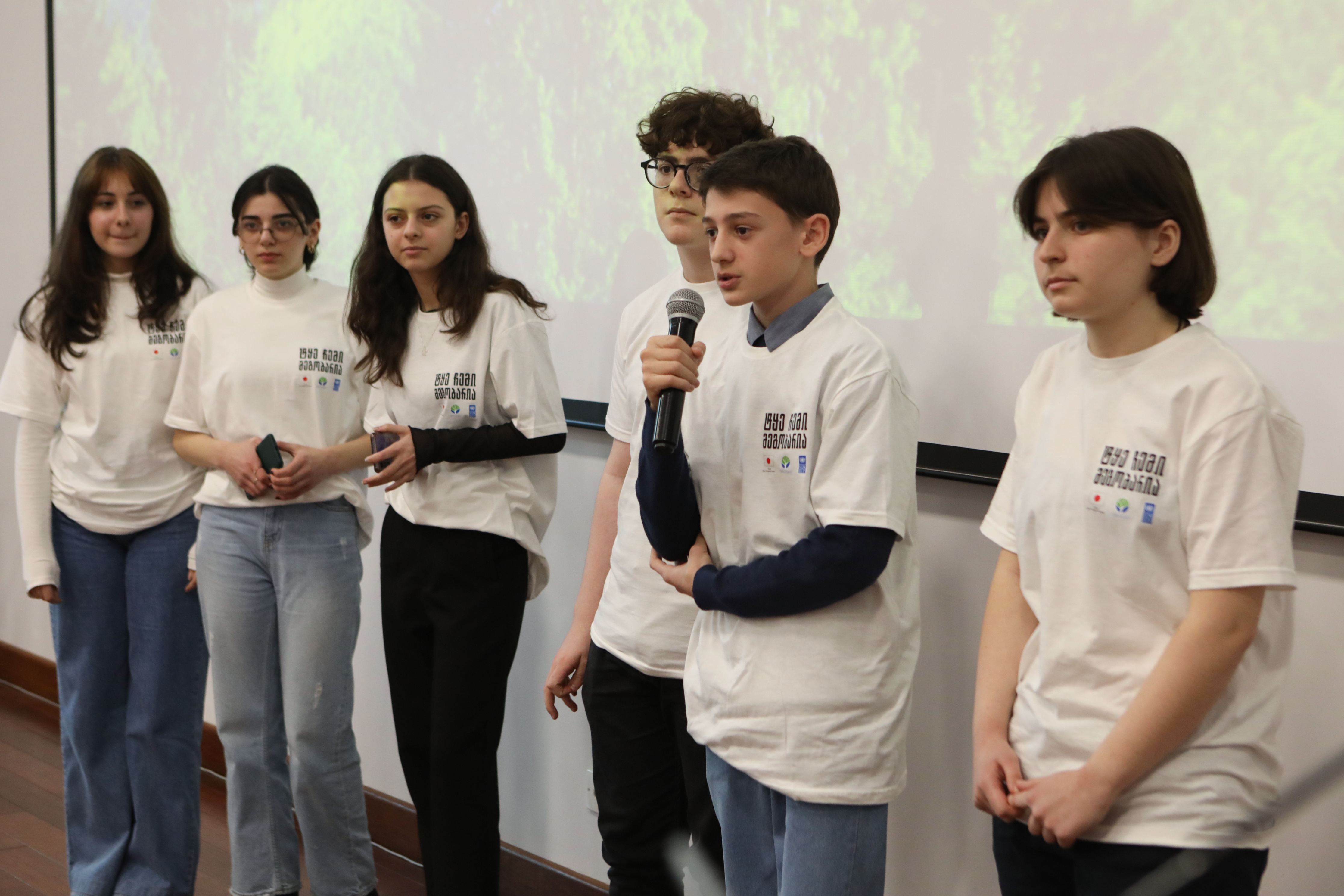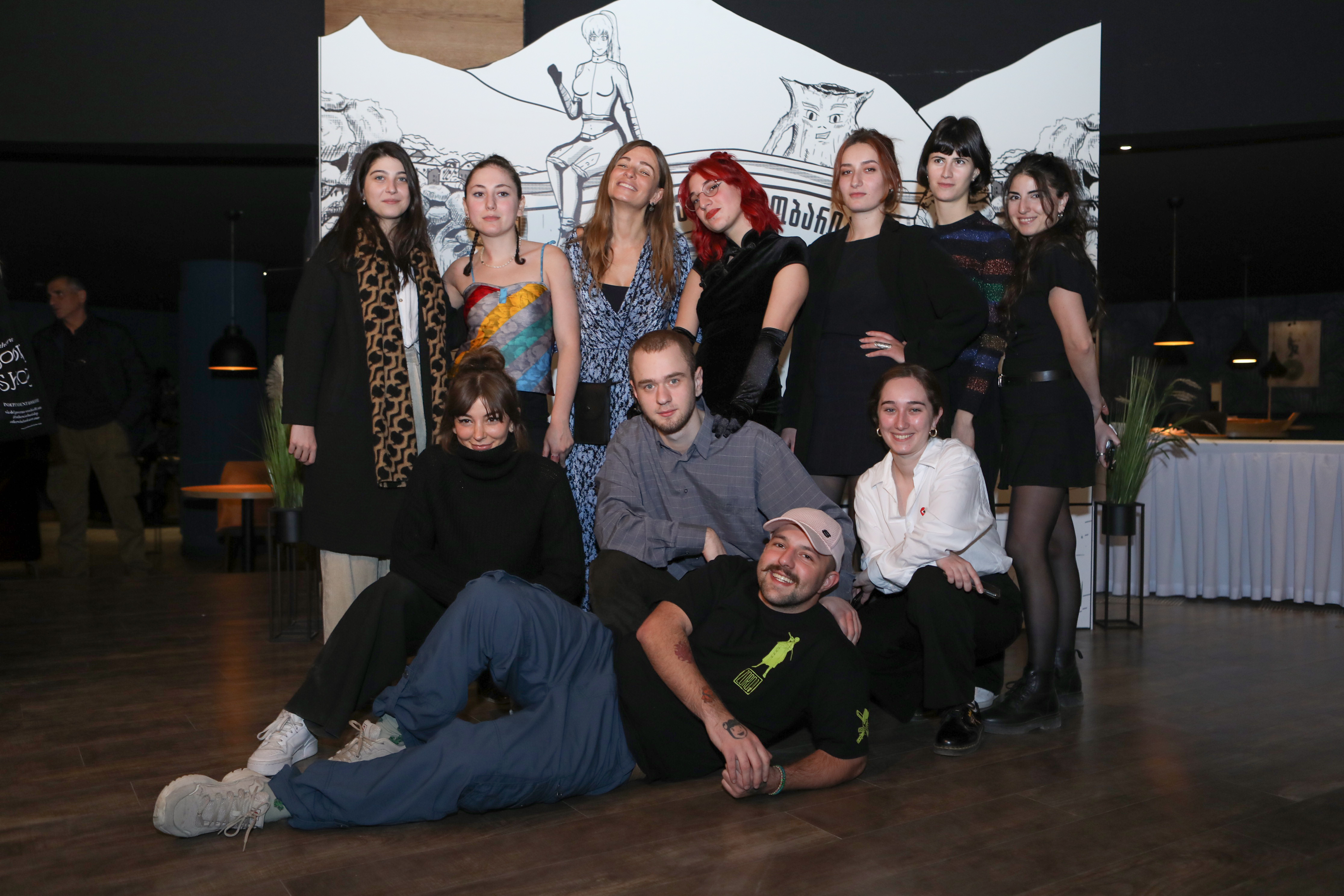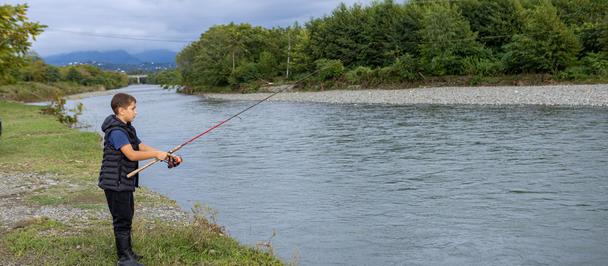Dali and Stumpy's Journey from Animation Heroes to Climate Action Catalysts
Forest My Friend Returns: A Promise for a Possible Future
December 5, 2023

In December 2022, the first episode of Forest My Friend manga animation swept across Georgia, enchanting hearts and sparking a new perspective on the relationship between forests and humans. Dali the Axe and Stumpy the Log, a human girl and a warrior tree, two unexpected allies in a life-and-death struggle, captured the imagination of hundreds of teenagers and adults alike.
Produced by UNDP and the "Democracy Lab” (DemLab) civil society organization, with funding from Japan, this creative venture transcended entertainment to become a social media hit. Beyond its captivating narrative, the manga production laid the foundation for a forest protection campaign, emphasizing the crucial role of forests in environmental protection, climate change mitigation, and sustaining livelihoods.
The impact extended to Georgian villages, where film screenings and educational discussions, particularly in the Mtskheta-Mtianeti region, propelled sustainable forest management initiatives. UNDP and Japan, alongside the National Forestry Agency and the Environmental Information and Education Centre, introduced practices promoting the responsible use of biomass and other renewable energy sources.
The story did not end with the animation. Inspired by the adventures of Dali and Stumpy, young minds across Georgia eagerly contributed ideas for sequel episodes, realizing the manga was merely the first step towards fostering sustainable forest management and environmental consciousness.
Nino Antadze, UNDP Environment and Energy Team Leader in Georgia, highlights, "Young people need Dali and Stumpy to understand nature and engage in climate action. At UNDP, we rely on these characters to convey the climate message to every corner of society, reaching all social groups and communities."

Young contestants presenting their ideas for the forest manga sequel.
Luka Imerlishvili, Giorgi Odishelidze, Mariam Katsarava, Keti Gulbatashvili, Lizi Mrevlishvili, and Mariam Tvaliashvili, a group of six eco-conscious friends from the town of Mtskheta and active members of their school's eco-club, jumped at the chance when UNDP announced a contest for the forest manga sequel. They worked hard to make the story exciting and intriguing, going the extra mile to illustrate characters and breathe life into their imaginative vision.
"Dali and Stumpy are cool! We want to show them growing up and becoming even braver," says Luka Imerlishvili.
Their dedication yielded results as several of their ideas, alongside 50 other contributions from teenagers across Georgia, were woven into the sequel scenario.
Keti Bojgua, Head of DemLab, notes, "It was fascinating turning the young ideas into a real script. We especially liked the suggestion to give Dali a greater role in the story, showing that girls and boys are equally courageous and proactive.”

DemLab's creative team celebrating the first screening of the forest manga animation.
Released just in time for COP28, the United Nations Climate Change Conference, the sequel episode carries a simple yet powerful message: The Future Is Possible when people work together, setting aside differences to rebuild their connection with nature. As the voice of Georgian youth, it resonates as a call to action for global leaders to take decisive steps towards reducing emissions, limiting fossil fuel usage, and building a sustainable future.
Georgia’s Climate Promise
Georgia's lush forests, covering over 43 percent of the country's land, serve as a vital resource, offering livelihoods, clean water, fresh air, and disaster protection to millions. However, this invaluable asset faces threats from overexploitation, illegal logging, and wildfires.
Nearly three-quarters of Georgia's population, particularly those in rural areas, still rely on firewood for heating and other necessities. Unsustainable timber consumption, reaching 2.4 million cubic meters annually, imposes a hefty cost of GEL446 million on Georgia each year. Wildfires further compound the issue, annually destroying and damaging thousands of hectares of forest.
The introduction of Georgia's new Forestry Code in 2020 marked the initiation of forestry reform, focusing on sustainable forest management and mitigating the risks of illegal logging and wildfires. In 2021, Georgia reinforced its commitment to climate action by adopting the National Climate Change Strategy and updating its Nationally Determined Contributions to the Paris Agreement. According to this ambitious plan, by 2030, Georgia aims to unconditionally reduce greenhouse gas emissions by 35 percent below the 1990 baseline and enhance forest carbon capture capacity by 10 percent from 2015 levels.
To support Georgia in achieving these goals, UNDP and Japan worked with the Ministry of Environmental Protection and Agriculture, municipal authorities, and local communities. Together, they introduce sustainable forest management practices that benefit nature, people, and the economy.
This collaboration is part of UNDP's global Climate Promise initiative, assisting 120 countries and territories in meeting their climate objectives. Georgia stands among 23 countries and territories where Climate Promise receives funding from Japan, the primary supporter of this groundbreaking effort.
###
Both episodes of the 'Forest My Friend' animation are available on UNDP Georgia YouTube.

 Locations
Locations





